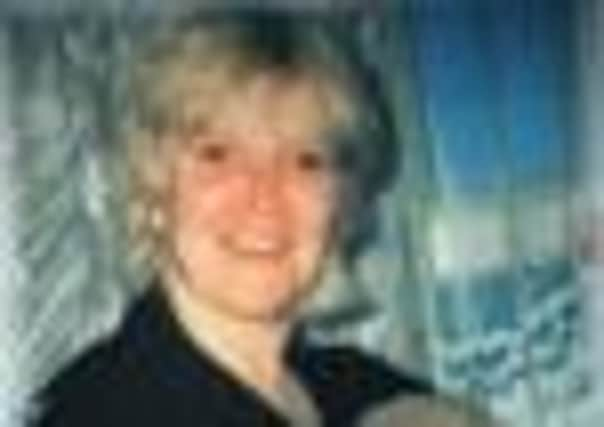Murder victim’s body parts kept in police storage


Maureen Comfort’s heartbroken family will hold the graveside blessing next week at Cottingley Cemetery, where they had originally laid her to rest in 1996.
Mrs Comfort, 43, whose relatives discovered her strangled to death and stuffed in a wardrobe, is one of 31 similar cases being revisited by West Yorkshire Police.
Advertisement
Hide AdAdvertisement
Hide AdHer niece Senga Bailey, who is still haunted by the discovery of her aunt’s body, was recently visited by detectives from the force who broke the shocking news they had retained samples from Mrs Comfort.
The visit follows an audit earlier this year that revealed samples of human tissue from cases dating back as far as the 1980s had been retained.
Ms Bailey, 51, of Crescent Towers, Hunslet, said: “I’m devastated, I’ve been struggling to get my head round it.
“I’ve never been able to get out of my mind the way she looked coming out of that cupboard the day we found her.
Advertisement
Hide AdAdvertisement
Hide Ad“I’ve tried to get on with my life and do the best that I can but now it’s like it’s all come back to me.”
Two men were convicted of Mrs Comfort’s murder after a trial at Leeds Crown Court in 1998.
The court was told concerned relatives had broken into the victim’s flat in Lincoln Green, Leeds, after Mrs Comfort had been missing for more than a month.
There they found her body in a cupboard in the bedroom.
West Yorkshire police are understood to have offered to liaise with the family regarding making a contribution to any costs.
Advertisement
Hide AdAdvertisement
Hide AdMs Bailey added: “We didn’t know the police still had these body parts and they were asking us what we want to do about them.
“We held Maureen’s funeral 16 years ago and we thought she was there all this time but now it feels like she hasn’t been at rest.
“They did offer to tell me what it was that they had but I didn’t want to know. It’s been enough of a shock to know that something like this can happen.”
Police confirmed this week that they had now visited the families of the victims in all 31 cases affected by the audit.
Advertisement
Hide AdAdvertisement
Hide AdIt is understood that all of those cases involve “significant” samples of human tissue, including organs, taken during investigations into suspicious deaths.
West Yorkshire Police’s Assistant Chief Constable Jawaid Akhtar said the force’s main concern had been to ensure families were visited by specially trained officers and support offered.
He added: “I and Her Majesty’s Coroners have written personally to explain and to apologise to each of the families concerned.”
The samples are taken when a Home Office pathologist performs a post-mortem examination to determine vital details and collect evidence.
Advertisement
Hide AdAdvertisement
Hide AdAs part of the examination, tissue is removed from the body for further investigation which can include toxicology, histology and examination by other experts.
The issue of body parts being retained first came to light following a national audit of mortuaries in 2010 which revealed tissue from homicide cases was still being retained sometimes years after the post mortem or coroner’s inquest.
Every police force was then was asked to conduct a comprehensive check of all police premises, mortuaries, or other relevant places to identify retained tissue.
Assistant Chief Constable Jawaid Akhtar, who has led the local audit, said: “Our main concern was to ensure that the families were immediately visited by specially trained Family Liaison Officers so we can explain to them personally what has occurred and offer our support and assistance.
Advertisement
Hide AdAdvertisement
Hide AdThis will include establishing the families’ wishes as to how the samples should be dealt with, ensuring this is done with dignity and sensitivity.
He added: “My first priority is to do whatever we can to assist and support the families in delivering what may be distressing news.”
Police say since the issue was brought to light, new processes have been put in place which will make sure next of kin are informed when samples are taken.
The samples will only be retained for as long as necessary and will be returned to families or appropriately dealt with as soon as they are no longer needed for investigations.
Advertisement
Hide AdAdvertisement
Hide AdThis is not the first time West Yorkshire has been at the centre of an organ scandal.
In 2004, Leeds General Infirmary was named as one of a string of hospital across the country where organs had been removed from children without their parent’s consent by the NHS.
More than 1,500 organs were removed at Leeds hospitals without the consent of parents. Most were returned to families.